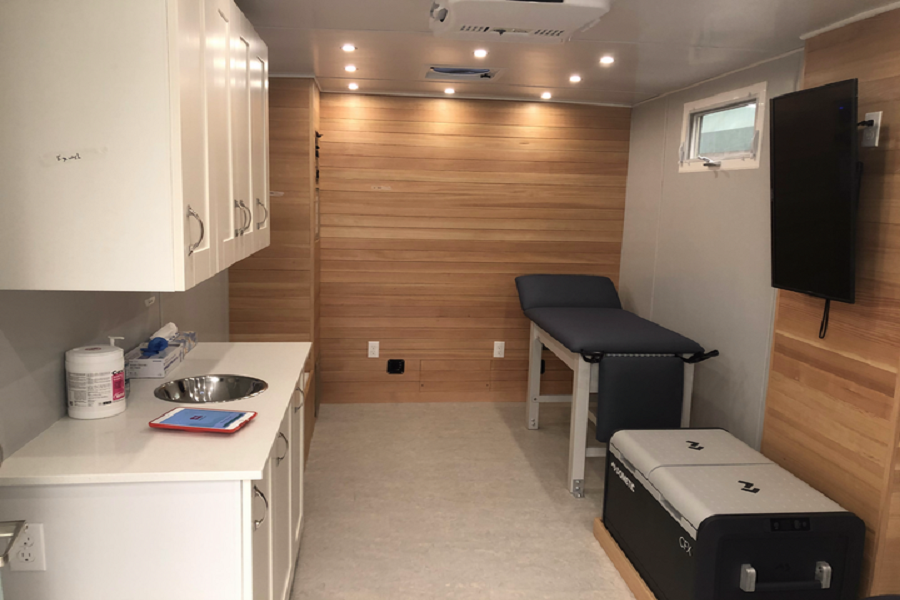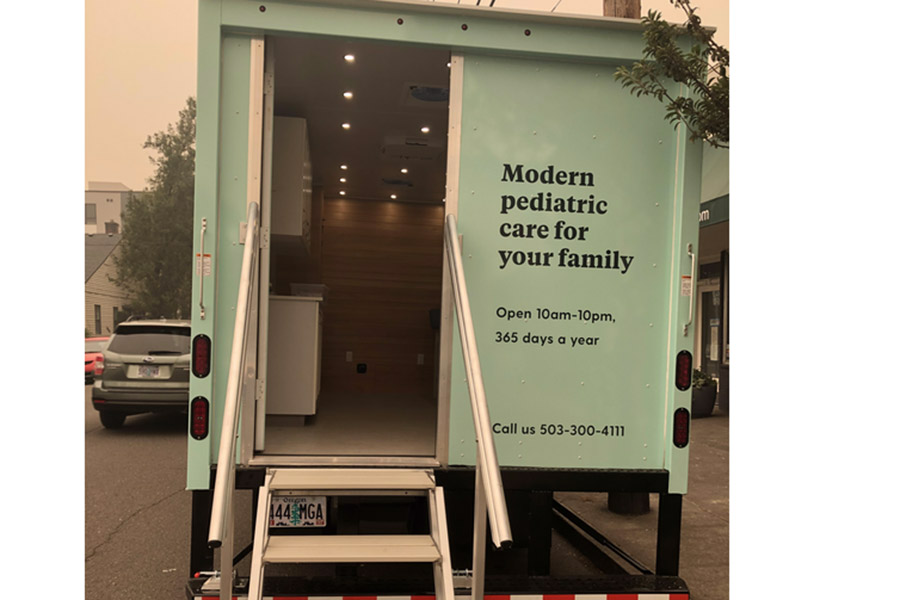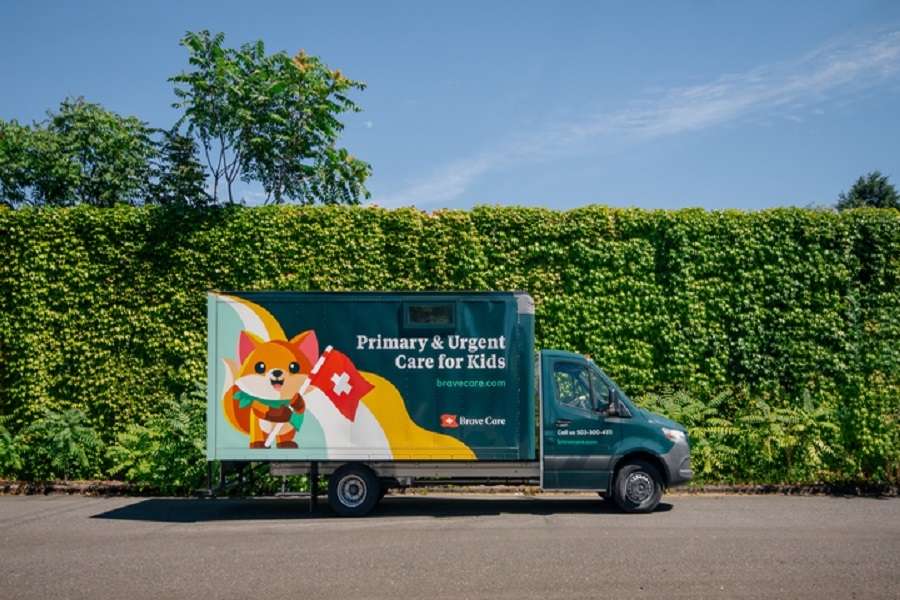Brave Care Clinic’s mobile, pandemic-conscious approach to pediatric care may be a sign of things to come in a changing health care industry.
If there is one thing the coronavirus pandemic has made clear, it is that health care in the U.S. will never be the same. While the pandemic has exposed plenty of cracks in health care delivery, the virus has also ushered in a new wave of innovation, such as telemedicine.
Brave Care Clinic, a pediatric clinic founded by Dr. Corey A. Fish, is another such innovation.
The clinic, which has a brick and mortar location in Portland, opened the doors of its mobile healthcare van on Sept. 10. The full-service pediatric office offers COVID-19 testing, primary, urgent and behavioral care. The van also offers virtual health care appointments.
 Inside the Brave Care Clinic’s mobile medical facility. Credit Brave Care
Inside the Brave Care Clinic’s mobile medical facility. Credit Brave Care
The business model presents a solution for rural communities with less access to health care than urban communities. It also provides health care to people fleeing natural disasters.
Fish and co-founder and CEO Darius Monsef developed his business at the Y Combinator business accelerator in California. He had not planned to open the clinic for another year but the pandemic made him change his mind.
“We had the plan to get this thing up and developed quickly but COVID-19 accelerated those plans,” says Fish. “Vaccination rates for kids are way down, and when parents finally do take their children to see the doctor, they’re often a lot sicker because they held off going.”
It used to be that home visits for health care were the norm. In the 1930s, 40% of physician-patient interactions were home visits, according to the National Library of Medicine. By 1980 house calls made up less than 1% of such encounters.
The decline in home visits stemmed from the more robust hospital model of health care. But the advent of mobile technology, the ability to interact digitally with doctors in real time and the urgent need to address hospital crowding during a pandemic makes the sector ripe for innovation.
The model is also more adaptable to situations in which evacuations are necessary. As health care facilities in Woodburn, Mt. Angel and Silverton faced closure because of this month’s wildfires, a clinic able to treat wounds, as well as follow along behind evacuees, may prove vital.
The mobile clinic comes equipped to handle all the staples of pediatric medicine, including check-ups, x-rays and blood tests. While the van does not offer all the capabilities of an emergency room.
Fish says when it comes to urgent care visits, his van is able to deal with more routine urgent care such as stitches, which forces many families to go to the ER.
 The Brave Care Clinic amid wildfire smoke Credit Brave Care Clinic
The Brave Care Clinic amid wildfire smoke Credit Brave Care Clinic
“We aren’t an alternative to the emergency room, but often when a patient visits the emergency room, 75% of the time that patient didn’t actually need the ER,” says Fish. “I can’t do everything the ER can do, but I’m one-tenth as expensive.”
While his practice, based in Sellwood, a suburb of Portland, only serves the Portland metro area, serving the needs of rural communities is being discussed as a potential component of the company’s long-term strategy, though the clinic has no plans to serve rural communites in the short term.
“We’re brainstorming ways to get out to rural communities right now. Things like taking the van outside the city for a week,” says Fish.
To subscribe to Oregon Business, click here.





